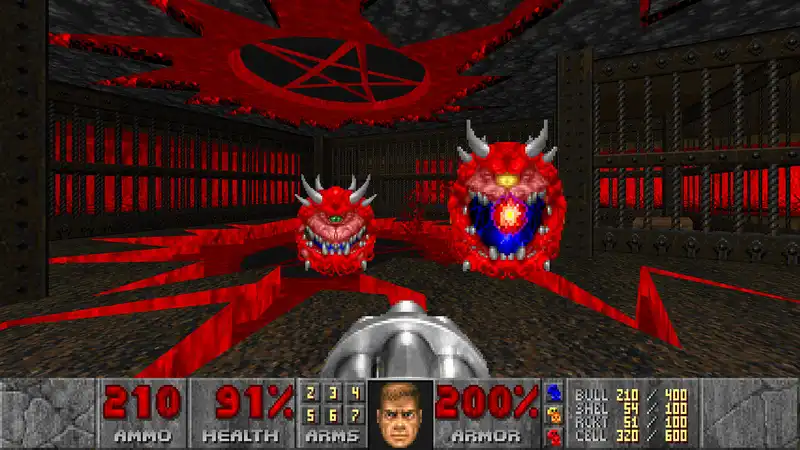Last week, Bethesda released new editions of its Doom and Doom 2 Steam remasters. The update to Bethesda's existing Doom + Doom 2 remaster bundle allows for cross-platform online multiplayer, new official episodes, and the use of over 20 years of existing DOOM mods that can be published and installed through the in-game mod browser and new enhancements like a new BOOM compatibility engine that will allow for the use of the game's newest and most popular mods. Cool!
Unfortunately, the mod browser seems to allow you to upload any mod you want and say you made it. Not cool.
It was discovered by RockPaperShotgun that, aside from the “report mod” button, publishing files through the Doom + Doom 2 in-game mod browser seems to lack any sort of moderation or verification guide rail. If you extract the .WAD of your choice from Doomworld, slap it in there, and write in the description “This is something I made seriously, and no court can prove otherwise,” no one will ever know unless the creator of the mod notices and reports it by hand.
Just like the art posting accounts you see all over social media that simply write “all credit goes to the creator 😊” under stolen media, the in-game mod browsers are already flooded with mods that have been uploaded without the creator's permission. Jean-Paul Lebreton, a game designer who worked on “BioShock” and “Psychonauts 2” and is also known as the “Doom” Moder, wrote in a contribution to cohost that the implementation of mod browsers is “a massive breach of trust, a phenomenon that id/zeni is now monetizing It's a shitty thing to do to the community that created it,” he said.
This seeming cavalierness about the possibility of plagiarism is particularly frustrating because it is a debacle that ZeniMax and Bethesda have played out many times in the past; in 2015, Valve stopped a short-lived paid mod experiment in the Steam Workshop, in part because, “We're not going to be able to do it again, because users were re-uploading mods from other creators and selling them as their own. Only a year later, “stolen” mods uploaded to Bethesda's mod directory without creator approval appeared in the console version of Fallout 4.
While I am sure that the mod scene in Doom would have continued just fine on its own without an in-game mod browser, I can understand the logic behind its implementation: as was the case with Fallout and Skyrim, even console players could get from the game itself By expanding the range of mods available, Bethesda will be able to more fully exploit a selling point that has traditionally only applied to the PC version of the game.
That said, given Bethesda's need for modders to continue to voluntarily provide content, I wish they had given this a little more thought before opening their gates to the mod publishing wilderness. We have had more than enough practice so far.


Comments